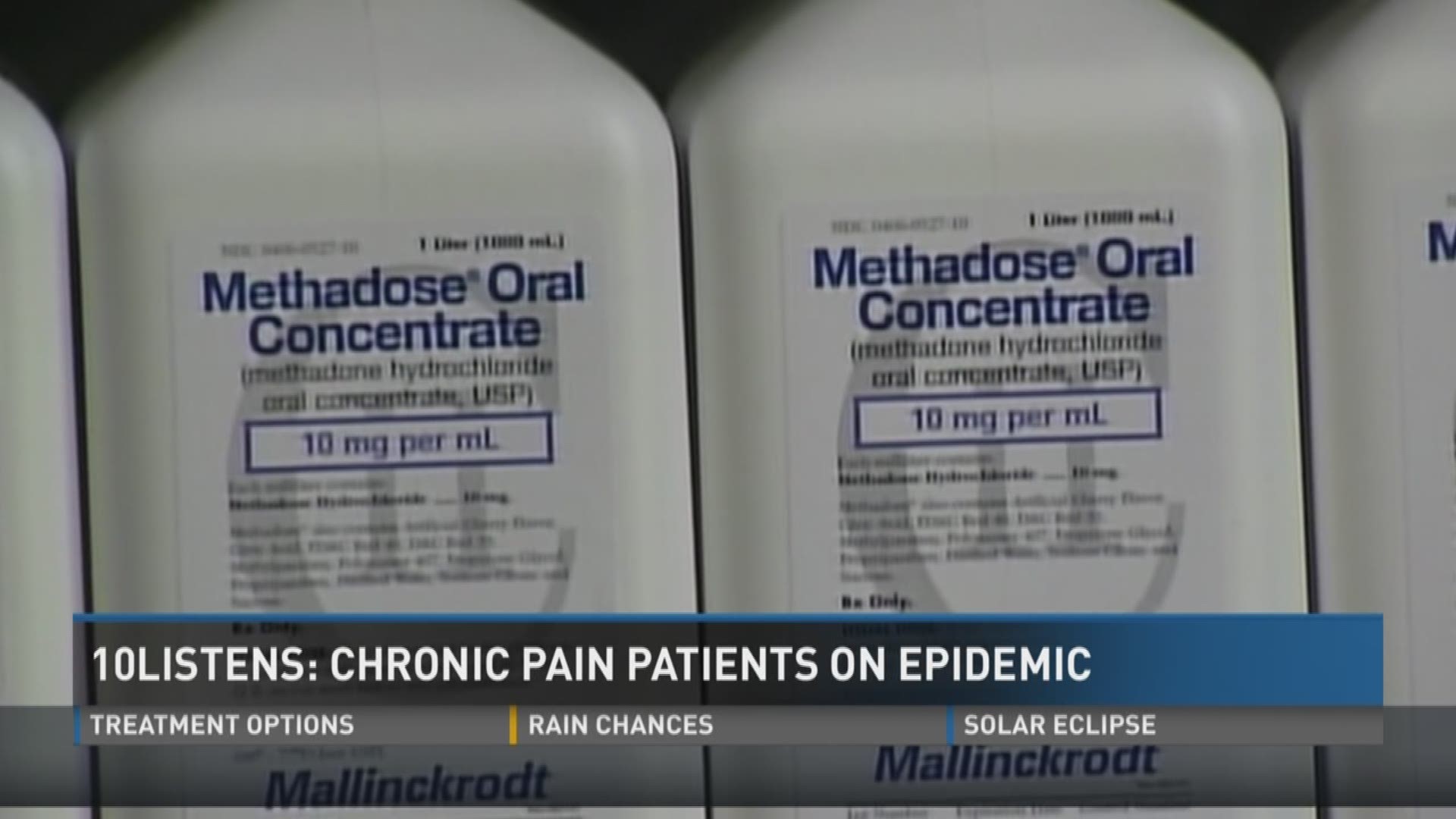The opioid epidemic makes it more difficult for pain patients to get the help they need with more regulations, restrictions and stigma.
"I have chronic pain in my fingers they have knots and they shake and they go crooked and they hurt really really bad," said Maggie Young, a 60-year-old South Knoxville woman living with chronic pain.
Young's hands shake, her feet are swollen and her back has a sharp pain. She's been living with chronic pain for 10 years.
Young was on Methadone, a drug that treats pain but also commonly treats drug addiction.
After the state regulated opioid drugs recently, she was put on Fentanyl and Opana, two other narcotics.
"During those four months it was by the grace of God, I didn't kill myself. It was a nightmare," Young said about the effects of Fentanyl and Opana. "I pray I never go through that again. It was horrible."
To get help, Young now goes to a Methadone clinic in Knoxville.
"Since Methadone was taken off the market and all these other pain pills came along, I was just forgotten, I was thrown in and nobody cared," Young said.
Dr. Joe Browder at the Pain Consultants of East Tennessee, PCET, directly sees the effects of the opioid epidemic on his practice.
"The chronic pain patient is the one group who has been forgotten with this epidemic," Dr. Browder said.
At PCET, the physicians focus on pain treatment by using a multidisciplinary approach.
"You have to evaluate the patient including their psychological risk for addiction and then modify your practice for that," Dr. Browder said.
To treat his patients, Browder uses a variety of treatment including psychological, functional, procedural, physical therapy, occupational therapy.
"Most patients most people in the community do not realize that there are many more treatments for pain that just narcotics," Dr. Browder added.
When it comes to the narcotics, Dr. Browder said they pay close attention to the dose.
"If your pain medications are prescribed appropriately you actually function better," Dr. Browder added.
Young agreed, she just wishes it was easier to get what she needs to manage her pain.
"People need to know what's going on with chronic pain and they can't get help," she added.

